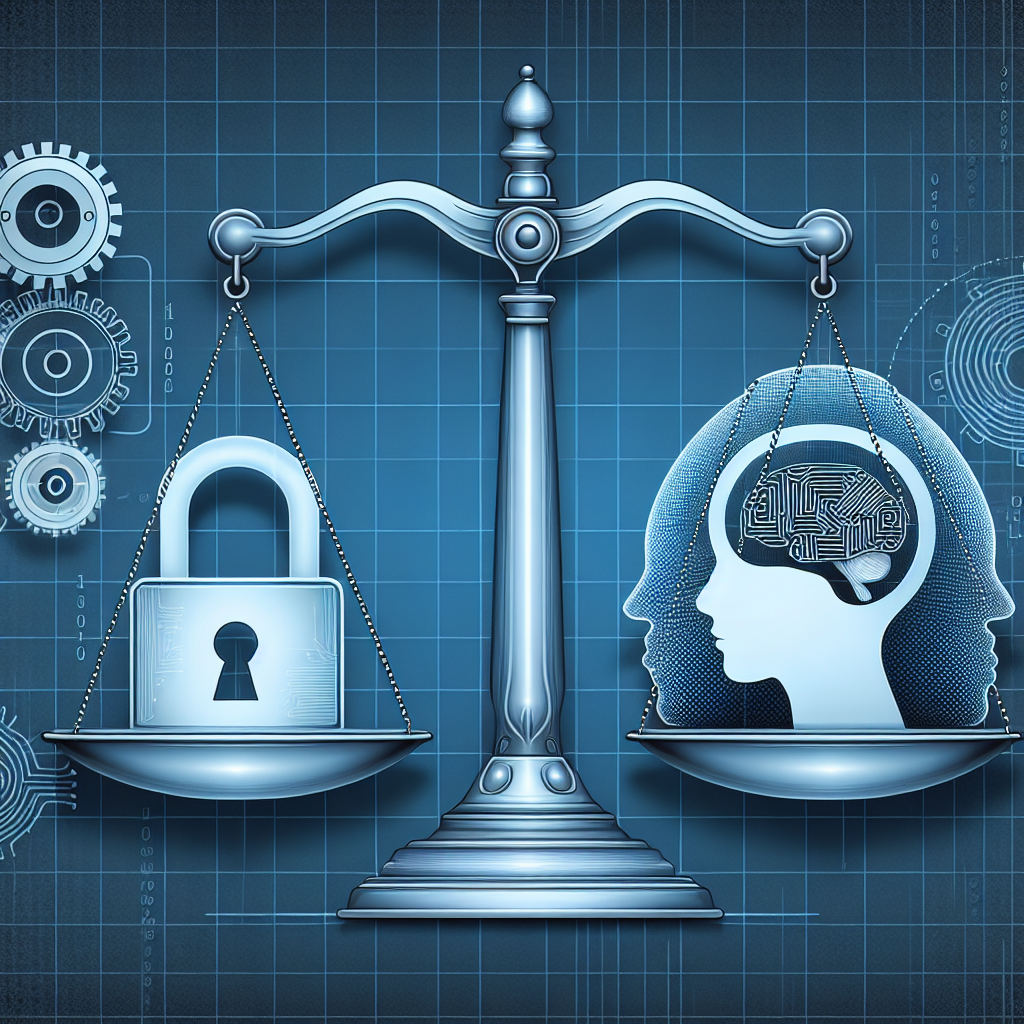Ethical AI: Balancing Privacy and Security Concerns
Artificial Intelligence (AI) has become a powerful tool in various industries, from healthcare to finance to transportation. It has the potential to revolutionize the way we live and work, but it also raises ethical concerns, particularly when it comes to data privacy and security. As AI systems become more sophisticated and pervasive, it is crucial to strike a balance between harnessing the benefits of AI and protecting individuals’ privacy rights.
Privacy Concerns
One of the primary concerns surrounding AI is the potential for invasion of privacy. AI systems often rely on vast amounts of data to operate effectively, and this data can include sensitive personal information. For example, AI algorithms used in healthcare may analyze patients’ medical records to make diagnoses, while AI systems in retail may track customers’ purchasing habits to recommend products. While this data can be invaluable for improving services and making more informed decisions, it also raises questions about who has access to this information and how it is being used.
There is also the issue of consent when it comes to data collection and processing. Individuals may not always be aware of how their data is being used by AI systems, and they may not have given explicit consent for their information to be shared or analyzed. This lack of transparency can erode trust in AI systems and lead to concerns about potential misuse of data.
Security Concerns
In addition to privacy concerns, there are also security risks associated with AI systems. As AI becomes more integrated into critical infrastructure such as transportation and energy grids, the potential for cyberattacks and data breaches increases. Hackers may exploit vulnerabilities in AI algorithms to manipulate data or disrupt services, leading to serious consequences for individuals and organizations.
There is also the risk of bias and discrimination in AI systems, which can have ethical implications. AI algorithms are trained on large datasets, which may contain biases that can perpetuate discrimination against certain groups. For example, a facial recognition system may be less accurate in identifying people of color due to biases in the training data. Addressing these biases is essential to ensure that AI systems are fair and inclusive.
Balancing Privacy and Security
To address the ethical concerns surrounding AI, it is essential to strike a balance between privacy and security. Organizations that use AI must prioritize data protection and cybersecurity measures to safeguard sensitive information and prevent unauthorized access. This includes implementing encryption protocols, access controls, and regular security audits to identify and address vulnerabilities.
Transparency is also key to building trust in AI systems. Organizations should be clear about how data is collected, processed, and used, and they should provide individuals with the option to opt out of data collection if they choose. By being transparent about their practices, organizations can demonstrate their commitment to respecting individuals’ privacy rights and earning their trust.
Ethical AI also requires accountability and oversight. Organizations should have clear policies and procedures in place for handling data ethically, and there should be mechanisms for individuals to report concerns or complaints about how their data is being used. Regulatory bodies and industry standards can also play a role in ensuring that AI systems adhere to ethical principles and best practices.
Frequently Asked Questions (FAQs)
Q: What are some examples of ethical issues in AI?
A: Some examples of ethical issues in AI include privacy concerns, security risks, bias and discrimination, and lack of transparency. These issues can arise in various industries where AI is used, such as healthcare, finance, and retail.
Q: How can organizations balance privacy and security concerns in AI?
A: Organizations can balance privacy and security concerns in AI by prioritizing data protection and cybersecurity measures, being transparent about their data practices, and implementing accountability and oversight mechanisms.
Q: What are some best practices for ensuring ethical AI?
A: Some best practices for ensuring ethical AI include conducting regular security audits, addressing bias and discrimination in AI algorithms, obtaining consent for data collection and processing, and providing individuals with the option to opt out of data sharing.
Q: How can individuals protect their privacy when interacting with AI systems?
A: Individuals can protect their privacy when interacting with AI systems by being cautious about sharing personal information, reviewing privacy policies before using AI services, and being aware of their rights regarding data privacy.
In conclusion, ethical AI requires a careful balance between harnessing the benefits of AI and protecting individuals’ privacy and security. By prioritizing data protection, transparency, and accountability, organizations can build trust in AI systems and ensure that they are used responsibly and ethically. Addressing privacy and security concerns in AI is essential to realizing the full potential of this transformative technology while upholding ethical standards and protecting individuals’ rights.

